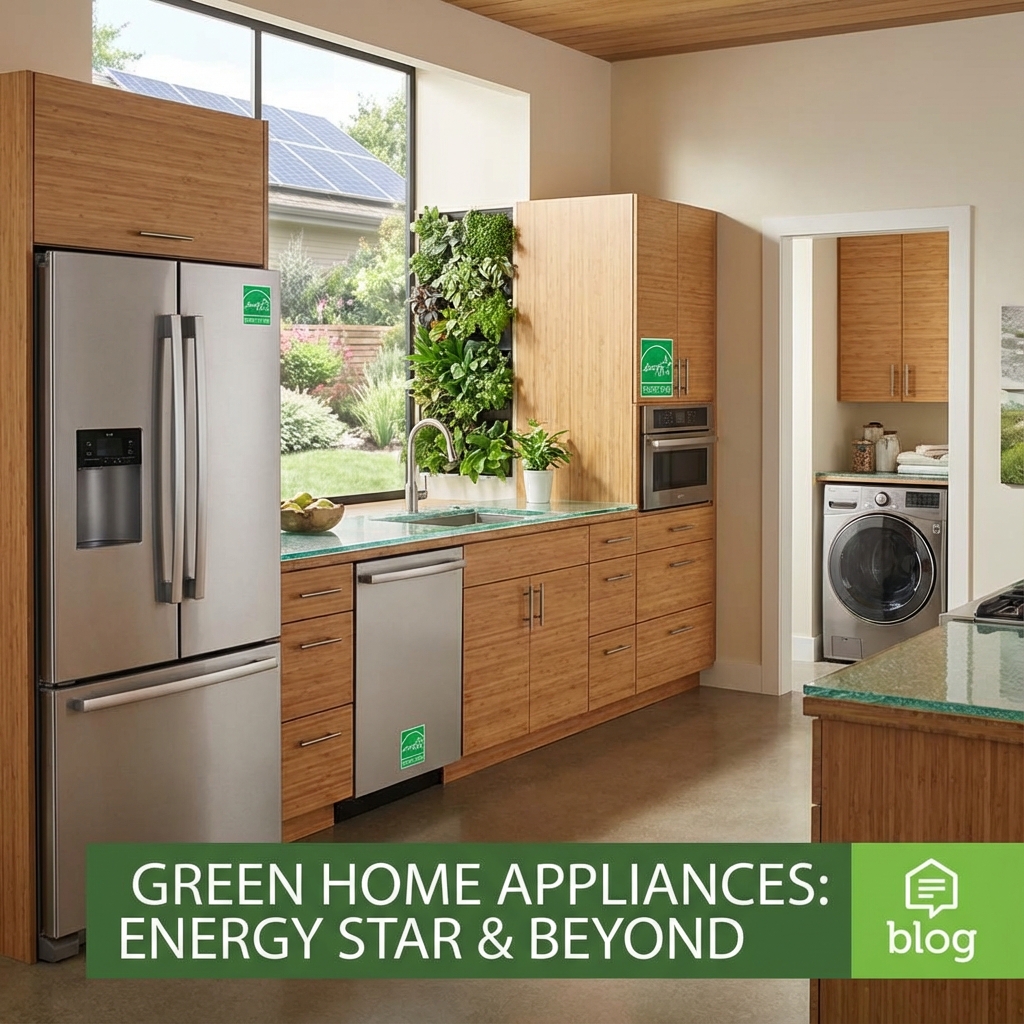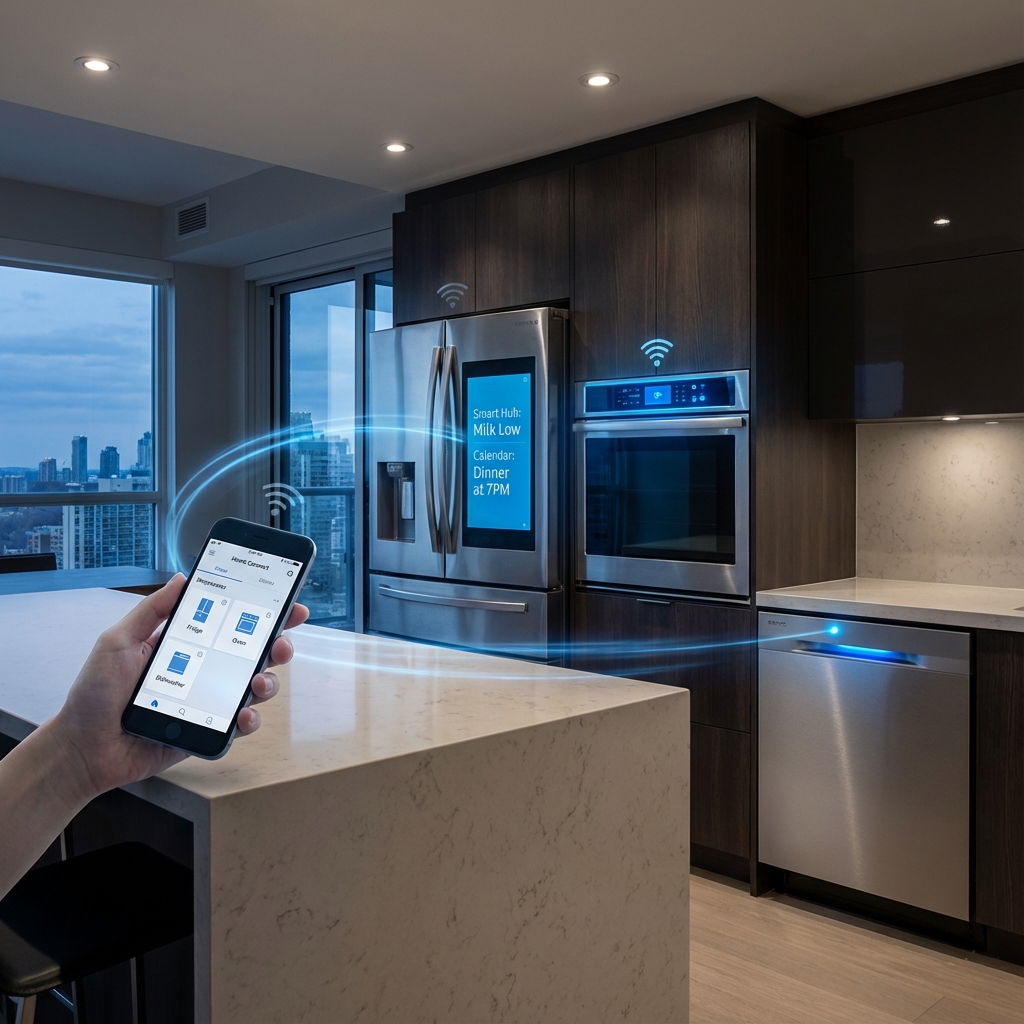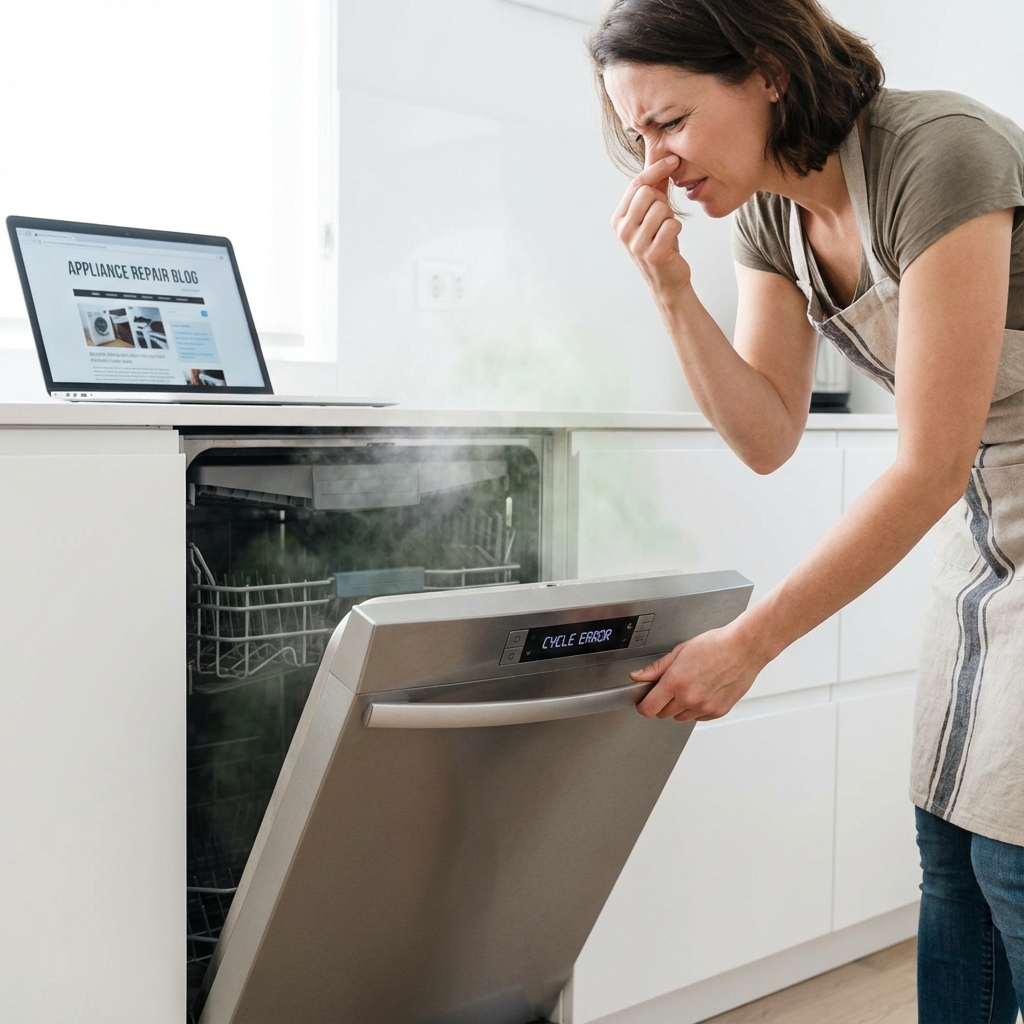How Energy-Efficient Appliances Can Lower Your Utility Bills
In today's economy, finding ways to reduce monthly expenses is more important than ever. One effective strategy that many homeowners overlook is upgrading to energy-efficient appliances. Modern energy-efficient models can significantly cut your utility bills while reducing your carbon footprint.
Quick Answer: Learn how modern energy-efficient appliances can significantly reduce your monthly utility costs while helping the environment. This is a common issue that can usually be resolved with proper troubleshooting. If the problem persists, professional diagnosis is recommended.
Understanding Energy Efficiency Ratings
When shopping for appliances, pay close attention to these ratings and certifications:
- ENERGY STAR Label: Products with this certification use 10-50% less energy than standard models.
- EnergyGuide Label: The yellow tag found on appliances that estimates annual operating costs and energy consumption.
- SEER Ratings: For air conditioners and heat pumps, higher SEER (Seasonal Energy Efficiency Ratio) numbers indicate better efficiency.
- AFUE Ratings: For furnaces, higher Annual Fuel Utilization Efficiency percentages mean more efficient heating.
The Most Impactful Appliance Upgrades
Not all appliance upgrades will deliver the same return on investment. Here are the ones that typically provide the biggest energy savings:
1. Refrigerators
Refrigerators run 24/7, making them one of the biggest energy consumers in your home. Modern ENERGY STAR models use about 50% less energy than refrigerators made before 2000. Upgrading an old refrigerator can save $100-$200 annually on your electric bill.
2. Washing Machines
ENERGY STAR washing machines use about 25% less energy and 33% less water than conventional models. Front-loading washers are typically more efficient than top-loading models, using less water and extracting more water during the spin cycle, which reduces drying time.
3. Dishwashers
New, efficient dishwashers use half the energy and save about 1,600 gallons of water over its lifetime compared to hand washing. Look for models with multiple cycle options that allow you to choose eco-friendly settings.
4. HVAC Systems
Heating and cooling account for nearly half of home energy use. Upgrading to a high-efficiency HVAC system can reduce these costs by 20-40%. Smart thermostats can further enhance these savings by automatically adjusting temperatures based on your habits and schedule.
Calculating Your Return on Investment
While energy-efficient appliances often have higher upfront costs, they can pay for themselves through utility savings. Here's how to calculate your potential return on investment:
- Find the energy usage of your current appliance (in kWh)
- Find the energy usage of the new, efficient model
- Calculate the difference in annual energy costs
- Divide the price premium of the efficient model by your annual savings
For example, if a new refrigerator costs $300 more but saves $150 per year in electricity, it will pay for itself in just 2 years.
Expected Lifespans and Long-Term Savings
When calculating ROI, consider these typical appliance lifespans:
- Refrigerators: 10-15 years
- Washing machines: 10-14 years
- Dishwashers: 8-10 years
- HVAC systems: 15-20 years
A refrigerator that saves $150 annually could save you $1,500-$2,250 over its lifetime.
Additional Benefits Beyond Energy Savings
Energy-efficient appliances offer benefits beyond just lower utility bills:
- Better performance: Newer models often clean, cool, or heat more effectively
- Smart features: Many energy-efficient appliances come with smart technology that enhances convenience
- Increased home value: Energy-efficient homes typically sell for 2-4% more than comparable properties
- Environmental impact: Less energy consumption means a smaller carbon footprint
- Potential rebates and tax credits: Many utilities and governments offer incentives for energy-efficient upgrades
When to Upgrade vs. Repair
As appliance repair professionals, we're often asked whether it's better to repair an existing appliance or upgrade to an energy-efficient model. Consider these guidelines:
- If your appliance is more than 10-15 years old, upgrading will likely provide significant efficiency improvements
- If repair costs exceed 50% of replacement cost, upgrading is usually more economical
- If your energy bills are unusually high, upgrading major appliances could provide substantial savings
Professional Installation Matters
To maximize the efficiency of your new appliances, professional installation is crucial. Improper installation can reduce efficiency by up to 30% for HVAC systems and lead to premature wear for other appliances.
Our technicians are certified to install all major brands of energy-efficient appliances according to manufacturer specifications, ensuring you get the full benefit of your investment.
Conclusion
Upgrading to energy-efficient appliances is one of the most effective ways to reduce your utility bills while improving your home's functionality and reducing its environmental impact. While the upfront investment may be higher, the long-term savings and benefits make energy-efficient appliances a smart choice for most homeowners.
Contact our team for a personalized assessment of which energy-efficient appliance upgrades would provide the best return on investment for your specific home and usage patterns.
Service Areas:
- Downtown Toronto
- North York
- Scarborough
- Etobicoke
- Mississauga
- Brampton
- Markham
- Richmond Hill
- Vaughan
- Ajax
- Oakville
- Burlington
- Milton
Emergency Appliance Repair Toronto
24/7 Emergency Service: When your appliances stop working, JK Appliances offers emergency repair service throughout Toronto and the Greater Toronto Area.
Contact Us:
- Phone: +1 6475608966
- Book Now: Book Now
- Email: services@jkappliancesrepair.com
- Address: 1234 Main St, Toronto, Ontario, M1A 2B3
Common Questions People Ask
Q: Is it normal for my appliance to have issues? No, this is not normal behavior and indicates an underlying issue that should be addressed promptly to prevent further damage.
Q: Can I fix this appliance problem myself? Some basic issues can be resolved with DIY troubleshooting, but complex problems require professional diagnosis to avoid safety risks and warranty issues.
Q: How much does professional appliance repair cost in Toronto? Repair costs typically range from $150-$400 depending on the specific issue and parts needed. Our technicians provide free estimates before any work begins.
Q: How long does appliance repair take? Most repairs are completed within 1-2 hours during a single visit. Some cases may require ordering specialty parts with a follow-up appointment.
Q: Should I repair or replace my appliance? If your appliance is less than 8 years old and repair costs are under 50% of replacement cost, repair is usually the better value. Our technicians can help you make the right decision.
Q: Do you offer same-day appliance repair in Toronto? Yes! We offer same-day and emergency repair services throughout Toronto and the Greater Toronto Area for urgent issues.
Q: What brands of appliance do you repair? We service all major brands including Bosch, Samsung, LG, Whirlpool, KitchenAid, GE, Maytag, Frigidaire, Miele, and more.
Q: Is appliance repair covered by warranty? Many appliance issues are covered under manufacturer warranty. We can help verify your warranty status and handle claim processing.
Expert Tips & Pro Insights
💡 Pro Tip: Regular maintenance can prevent 80% of appliance problems. Follow manufacturer guidelines for cleaning and care.
⚠️ Safety Warning: Always disconnect power before attempting any repairs or inspections. If you smell gas, evacuate immediately and call emergency services.
🔧 Technician Insight: Many issues that seem complex often have simple solutions. Start with basic troubleshooting before assuming the worst.
📞 When to Call a Professional: If you encounter electrical components, gas lines, refrigerant systems, or if basic troubleshooting doesn't resolve the issue, it's time to call an expert.





